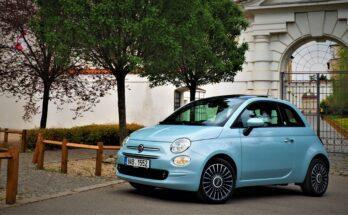The traditional CEATEC trade fair , which focuses on IT and electronic products, started today in Japan . Here, in addition to giants such as Sharp , Panasonic and Sony , the Toyota car company will present itself with the Smart Insect concept . If you remember the i-Unit mobile superchair , you can easily deduce what the new concept is all about.
The Toyota Smart Insect is designed as an electric car for one passenger. Despite its literally miniature dimensions, it has systems that have not yet been presented even by luxury brands. Voice recognition, motion sensors and intuitive behavior depending on the driver's habits are the order of the day here.
Basically, everything works very simply. If the owner approaches the vehicle at the desired distance, it recognizes it, unlocks it and greets it with a cute flash. However, after sitting down, things start to happen. The virtual agent tunes in to your favorite radio station and knows where you want to go. So, if you drive to work every morning, the system itself enters the destination into the navigation and, depending on the traffic situation, chooses the best possible route. Other specifics include the connection with a smartphone , thanks to which the car remotely controls the door locks of your house or the temperature settings in the building. However, he cannot yet prepare his favorite drink, light candles and fill a hot bath…
Toyota 's megalomaniacal visions of ecological transport for individual passengers are also reflected here. Smart Insect monitors all vehicles in a certain radius and can communicate with them. So if you want to invite a nice lady or gentleman for coffee, Smart Insect will be happy to take on the role of matchmaker.
The automaker has not yet published more detailed information about the powertrain and range on a single charge. However, as with most electric cars , we can expect a lithium-ion battery and plug-in charging technology. The action radius of the vehicle should allow for movement in large cities, so I estimate a range of around 60 kilometers per charge.
Photo: Responsejp, Insideline



